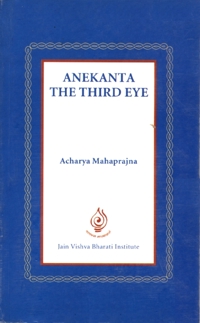
Origination and cessation are two principles. The third is permanence or dhrauvya. Dhruv means immortal. That which never dies is dhruv. That which never comes to an end. Dhrauvya is the third eye. We have to open this. This is the eye, which discerns the truth. Once this opens the question of rebirth just does not arise. Today science recognizes that matter can neither be created nor destroyed. Not a particle will increase or decrease. It only changes in form or undergoes transformation. According to Jain philosophy, the concept is that neither will a new element originate nor will any old one be entirely destroyed. So then why this question about the soul? Do atoms perish? If it has disappeared and you believe it to be finished, it is fallacious. We drank water. Now it is finished. Does that mean it has disappeared totally? If disappearing from sight is synonymous with termination, then why ask such a question about the soul? Why is this question not asked about atoms or aboutclouds. Sometimes we see the sky absolutely clear and at other times, filled with dark clouds. Where have the clouds gone? Have all the clouds finished? In such an interpretation every entity in nature, every object, every atom would cease to exist. But once we know the existence of something it can never cease to be. This aspect of permanence will be understood when the third eye is opened. When the eye of anekanta is opened, one realizes that neither is birth the truth nor death. They become true only when they are accompanied by permanence. Unless the eternal is added to any argument, truth cannot be arrived at. And unless the whole picture is before us, we cannot find the truth. The third eye should open, the eye of permanence should open.
 Acharya Mahaprajna
Acharya Mahaprajna
